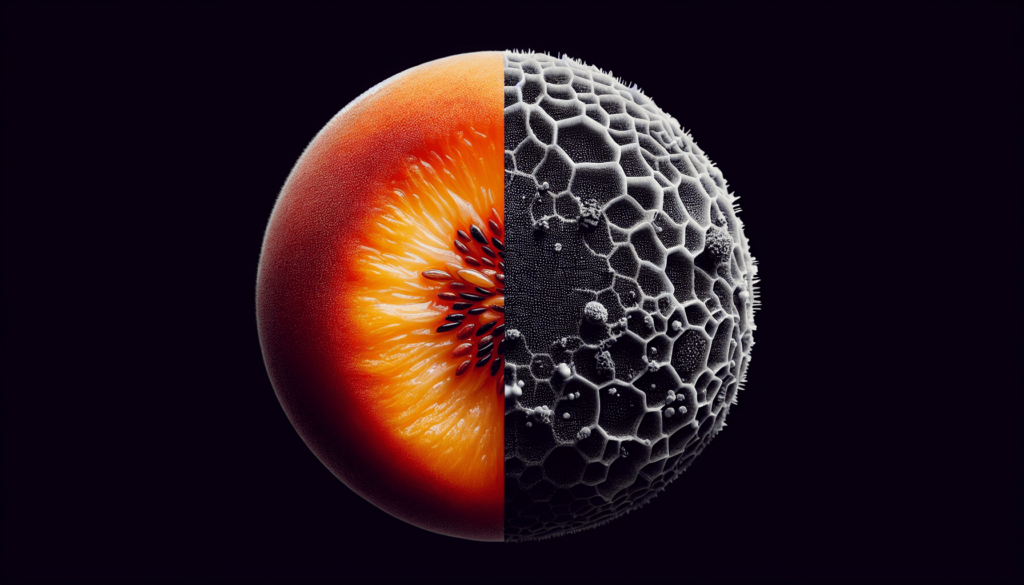Chemical Peel vs. Dermapeel: Understanding the Difference
If you’re looking to enhance the appearance and texture of your skin, you may have come across the terms “chemical peel” and “dermapeel.” While both treatments aim to improve skin conditions, they differ in their ingredients, application methods, and results. In this article, we’ll explore the key differences between a chemical peel and a dermapeel to help you make an informed decision about which treatment is right for you.

What Is a Chemical Peel?
A chemical peel is a cosmetic procedure performed by a skincare professional to exfoliate the outer layers of your skin. During a chemical peel, a chemical solution is applied to your skin, causing it to blister and eventually peel off. This process helps to remove dead skin cells, unclog pores, and stimulate the production of new skin cells, resulting in smoother, more radiant skin.
What Is a Dermapeel?
A dermapeel is a type of skin treatment that combines the exfoliating benefits of a chemical peel with the hydrating and nourishing properties of a facial. Unlike a traditional chemical peel, which can sometimes be harsh on the skin, a dermapeel is formulated with gentler ingredients that promote skin renewal without causing irritation or redness.
Ingredient Comparison
When comparing a chemical peel to a dermapeel, one of the key differences lies in the ingredients used in each treatment. Chemical peels typically contain strong acids, such as glycolic acid, salicylic acid, or trichloroacetic acid, that work to penetrate deep into the skin and dissolve dead skin cells. On the other hand, dermapeels often feature more soothing and hydrating ingredients, such as hyaluronic acid, vitamin C, and botanical extracts, to nourish and revitalize the skin.
Application Methods
Another factor that sets a chemical peel apart from a dermapeel is the way in which each treatment is applied. Chemical peels are usually performed in a clinical setting by a trained professional, who carefully applies the chemical solution to your skin in a controlled manner. Dermapeels, on the other hand, can sometimes be done at home using specially formulated kits that allow you to safely exfoliate and rejuvenate your skin in the comfort of your own space.
Results and Downtime
After undergoing a chemical peel, you can expect to experience some redness, peeling, and sensitivity in the days following the treatment. Depending on the strength of the peel, you may need to take some time off work or social activities until your skin has fully healed. In contrast, a dermapeel typically has minimal downtime and may only result in mild redness or tingling, making it a more convenient option for those with busy lifestyles.
Targeted Skin Concerns
When deciding between a chemical peel and a dermapeel, it’s important to consider the specific skin concerns you wish to address. Chemical peels are often recommended for conditions like acne, hyperpigmentation, and fine lines, as they can penetrate deeper into the skin to target these issues at their source. Dermapeels, on the other hand, are ideal for individuals looking to achieve a more radiant complexion, improve skin texture, and enhance overall skin health.
Cost Comparison
The cost of a chemical peel versus a dermapeel can vary depending on factors such as the type of peel, the strength of the solution, and the location where the treatment is performed. In general, chemical peels tend to be more expensive than dermapeels, as they require specialized ingredients and professional application. However, dermapeels offer a more affordable and accessible option for those seeking to renew and rejuvenate their skin without breaking the bank.

Choosing the Right Treatment for You
Ultimately, the decision between a chemical peel and a dermapeel comes down to your individual skin type, concerns, and preferences. If you have sensitive skin or are new to exfoliating treatments, a dermapeel may be a gentler introduction to skin renewal. On the other hand, if you are dealing with stubborn skin issues that require a more intensive approach, a chemical peel may be the better choice for achieving visible results.
Whether you opt for a chemical peel or a dermapeel, both treatments have the potential to transform your skin and boost your confidence. By understanding the key differences between these two skincare procedures, you can make an informed decision that aligns with your skin goals and lifestyle. Whichever treatment you choose, remember to consult with a skincare professional to determine the best course of action for your unique skin needs.
